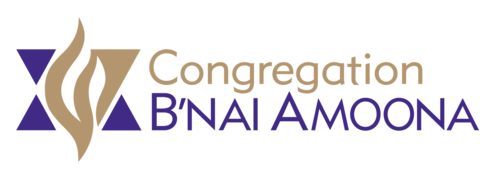Shalom Beloved BA Chaverim and Chaverot!
On each of the two days of Rosh Hashanah, which we will initiate on Friday evening, we read poignant selections from our Holy Torah that share: 1) the story of the miraculous birth of Isaac, and 2) the tale of the Akedah, the binding and near sacrifice of Isaac, the only child of our founding patriarch and matriarch, Abraham and Sarah. Childless and seemingly barren, miraculously and at an advanced age, Sarah conceives, and then shortly after, Isaac is born. Isaac, or Yitzchak as he is known in Hebrew, is given a name derived from the Hebrew word, Litzchok, to laugh, and this is quite apt as the Book of Genesis recounts that Mother Sarah laughed out loud at the news that she, a nonagenarian, was going to give birth. Of course, Isaac grew up as a precious, treasured child, so it must have come as a profound shock to Father Abraham when God appears to him and demands that he take his beloved son to Mount Moriah and place him on a sacrificial altar as a gift to the Master of Creation.
Often, when I teach these texts, I ask people to consider these Biblical tales and think about who the villains are and who the heroes; or as I like to playfully present it, the heroes and the zeros. Surely, the stories cannot, should not, and were never intended to, be taken at face value, and regardless of who we ultimately select, I can’t help but feel for poor Isaac. Knowingly or unknowingly, he acquiesces and goes along with Abraham and apparently is willing to lay down his own life so his father can again demonstrate his fidelity and fealty. Of course, God (or an Angel of the Lord) stops Abraham, tells him it was only another test, and instructs that the Patriarch sacrifice a ram whose horns have serendipitously become entangled in some nearby thicket. But regardless of the outcome, don’t we feel for Isaac?
Not surprisingly, there is a celebrated Midrash which posits that at the time of creation, God prepared three items for later use: The burning bush of Moses; the dove that signaled the end of the Mabul, the flood in the time of Noah; and the Abrahamic ram caught by its horns in the brush. From the beginning of time, our sages suggest, the Holy One had a plan as God always prepares the Refuah, the cure, before the Machalah, the affliction.
Avraham Avinu, the first Ivri, Hebrew, seemingly on his own, intuited that he was the Refuah, the healing, needed in his era. He was to be the counter-cultural, iconoclastic contrarian who understood that the idols his father, Terach, fashioned and which his family and friends worshiped, were mere statues, impotent idols. He believed in the one true God of the universe and that God was as real to Abraham as his own wife and children. So when God told Abraham to take his wife, his servants, and his possessions, and go to a new land, Canaan, Abraham obeyed unhesitatingly. So too, when called upon to raise up his son, Isaac, Abraham who clearly heard the unmitigated voice of the Almighty directly, acted without hesitation. He knew with absolute certainty that the God who had spoken to him directly would never fail him, never demand the cruelest of requests - the sacrifice of one’s own child, and would always be there for Isaac and us, Abraham’s descendants. And maybe that is why the ram's horn – the Shofar - has remained a powerful symbol for the ages.
For on Rosh Hashanah, as we hear the tales of the birth and near sacrifice of Isaac, along with the plaintiff wail of the Shofar, we recall that the healing we need is already at hand, and take heart that the God who was present to Abraham, and merciful to Isaac, will – on the merit of our faithful ancestors - again spare our lives, the lives of our loved ones, and grant us, and our people everywhere, a
Shanah Tovah, a year of healing and blessing...Amen!
-Rabbi Carnie Shalom Rose
ravroseba@bnaiamoona.com
314-576-9990 x105







